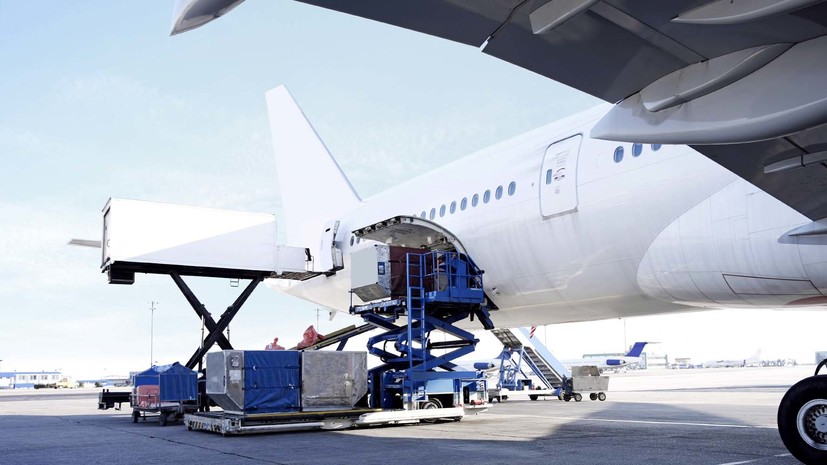In 2019, global demand for the delivery of goods by air decreased by 3.3%. This is stated in a study by the International Air Transport Association (IATA). According to experts of the organization, the collapse of the air cargo market was the largest in the last ten years.
“Cargo volumes decreased for the first time since 2012, and the market dynamics turned out to be the weakest since the World Financial Crisis in 2009, when demand fell by 9.7%,” IATA experts say.
According to the study, in December 2019, the global cargo aviation market fell by 2.7% compared to the same period in 2018. The most serious decline was recorded in Latin America (by 5.3%) and the Asia-Pacific region (by 3.5%), as well as in the Middle East and North America - by 3.4%.
“The global market has fallen due to a trade war between the US and China. The commodity circulation of these countries occupies a significant share in the global volume, therefore, the tariff confrontation had such a big impact on cargo aviation and world trade in general, ”Anton Nowov, head of the air transportation department of the AsstrA group of companies, told RT.
According to IATA, as a result of the US-China trade war in 2019, global trade grew by only 0.9%. For comparison, in 2017 and 2018, the indicator was 4.6% and 3%, respectively. Such data are provided by the World Trade Organization (WTO).
In 2018, Washington accused Beijing of illegally acquiring U.S. technology. According to Donald Trump, China’s actions led to an increase in the US trade deficit with the Asian republic to $ 375 billion. To solve the problem, the United States increased duties on Chinese goods imported into the country, and China introduced retaliatory measures.
After a series of negotiations in the spring of 2019, relations between China and the United States deteriorated sharply. States began to introduce new mutual restrictions, and American technology companies began to stop cooperation with Huawei. Meanwhile, in the autumn, the parties resumed dialogue and agreed on a truce.
Viral decline
On January 15, 2020, Washington and Beijing signed a trade deal. Nevertheless, experts still do not expect the restoration of the cargo aviation market in 2020. According to experts, the volume of transportation of goods by air may further decrease amid the spread of coronavirus in China.
“Although the tension in world trade has decreased, we don’t feel much relief from the good news. We are now in the dark about the possible effects of coronavirus on the global economy. The restrictive measures introduced due to the disease will certainly negatively affect economic growth. And, undoubtedly, 2020 will be another difficult year for the air cargo industry, ”said Alexander de Junyak, IATA Director General.
Recall that at the end of December 2019, authorities in the Chinese city of Wuhan reported an outbreak of a respiratory infection of unknown origin. In early January, Chinese experts said that the cause of the disease was a new type of coronavirus 2019-nCoV.
To date, the number of infected has exceeded 28 thousand people, 565 infected have died.
Cases of the disease are already registered in Beijing, Shanghai and other major cities of the country. At the same time, the virus began to spread outside of mainland China. Cases of the disease recorded in several countries in North America, Europe and Asia. As a result, many states began to suspend flights with China.
“In January, the fall in air cargo transportation continued due to the coronavirus in China, and in general, by the end of 2020, the market will not be able to show growth either,” Pavel Sigal, vice president of the Russian public organization for small and medium-sized enterprises, emphasized in an interview with RT.
According to him, a decrease in freight traffic is observed not only in the aviation industry, but also in rail, road and water transport. According to the expert, the physical volume of world trade has been declining for more than six months. The last time a similar situation could be observed only in 2008-2009.
Experts associate the current state of affairs with the general slowdown of the global economy. In its latest report, the International Monetary Fund (IMF) downgraded its forecast for global GDP growth from 3.4% to 3.3% in 2020 and from 3.6% to 3.4% in 2021.
Moreover, in a conversation with RT, Finam Group analyst Alexei Korenev did not rule out another deterioration in trade relations between the US and China. Thus, the global economy could slow down even more than predicted.
“In general, the global economy is entering a cooling phase. The only question is how long this period will be. The economy has been developing at an accelerated pace for a long time, and now, obviously, a correction has ripened, ”Korenev concluded.

